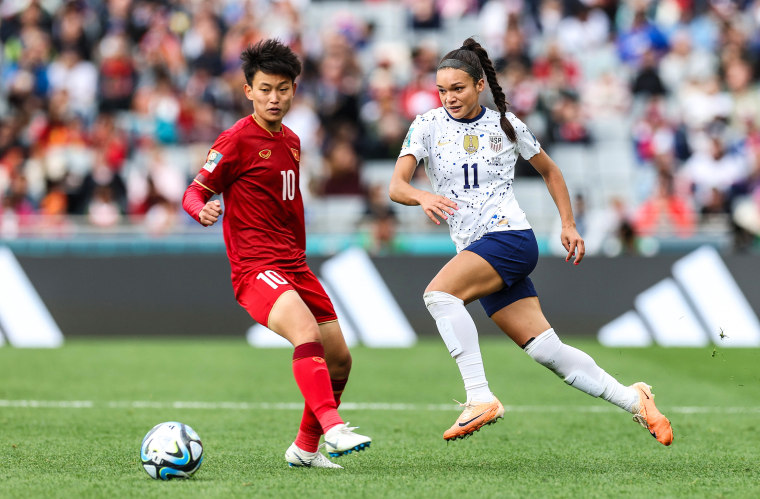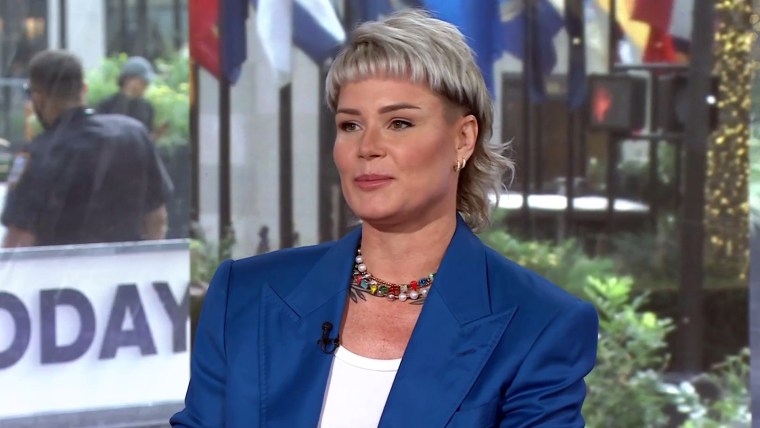As the Women’s World Cup unfolds in Australia and New Zealand, the National Women’s Soccer League (NWSL) has continued to break records this season, all while fighting for equal pay, players’ rights and a new positive culture after an abuse scandal rocked the league in 2021.
“When I took the job a year ago, our players were completely disenfranchised and demoralized,” said Jessica Berman, who is the league’s new commissioner.
Since the investigation – which reported allegations of emotional abuse and sexual misconduct toward players — multiple coaches have been permanently banned from the league, teams have cleared out staff members, and the NWSL has brought in fresh leadership.
In the wake of that rebranding, Commissioner Berman has made it her mission to elevate the league to new heights.
“The [report showed] systemic issues that exist for girls and women across all verticals and industries, but particularly in sport," she told Know Your Value. “Our league needed to take this issue head on and confront it with transparency and authenticity.”
This year, the league is operating under its first collective bargaining agreement between the NWSL Players’ Association and U.S. Soccer, which institutes new standards when it comes to player safety, resources and salary.
“[This role is] about investing in the players and making sure they have the right experience to be able to support their professionalism and growth in their careers,” Commissioner Berman said.
Previously, the commissioner held leadership roles in men’s professional leagues, including the National Hockey and National Lacrosse Leagues.
“I’ve learned over the last year how different [working in a women’s league is] because women's sports have experienced systemic challenges and barriers to growth,” she said. “[It’s important] to really acknowledge – for those of us who have spent our careers working in male-dominated industries – that we have a responsibility to allow our stories to be told so that we can inspire the next generation of marginalized or underrepresented groups to be in the boardroom and be a part of decision-making.”
Under Commissioner Berman’s direction, the NWSL has already seen significant growth. This year, the league set an opening-week attendance record when more than 90,000 people tuned in to watch matches across the first round of the 2023 season.
The NWSL regular season – which will pause in July and August for players to compete in the Women’s World Cup – spans from March to November, and showcases 12 teams with over 240 players.
By 2026, the league will expand to 16 clubs - and for good reason. Popularity among women’s soccer has soared. According to research firm NRG, the NWSL ranked highest in momentum compared to all other sports brands, including men’s sports.
In another recent survey of 1,000 soccer fans by Forza Football, 77 percent of respondents stated that their interest in women’s soccer has increased since the last Women’s World Cup in 2019.
“[The tournament] is an incredible opportunity for the world to focus on the fact that we have the best players that come out of the U.S.,” Commissioner Berman said.
To capitalize on the league’s incredible pool of talent, the commissioner brought on the NWSL’s first-ever chief marketing officer, Julie Haddon.
“I wanted to go help and change the experience for sport for women,” Haddon told Know Your Value. “And I’ve had so much fun realizing the power of how sport can help women.”
Haddon came to the NWSL from the male-dominated NFL. As the league’s first marketing chief, she has made it her mission to fill stadiums, make the game more accessible and bring attention to the players who are changing the sport’s culture.
So far, it’s working. There has been a 20 percent increase in season-ticket holders from last year. “We're in such a high-growth phase,” Haddon said. “Our marketing is focused on building an incredible brand. Our brand is inclusive. The ‘We Play Here’ campaign was an opportunity to reintroduce ourselves [ahead of the World Cup].”
Now, as both executives are experiencing the Women’s World Cup for the first time as a part of the league, they’re determined to shine a light on the 60 NWSL players who will represent 16 countries in Australia and New Zealand.
“It is a global event and we know that it's an opportunity for us to take the thread from that and intentionally bring it back into our league,” Commissioner Berman said. “If you love the World Cup, then you’ll love the NWSL.”




